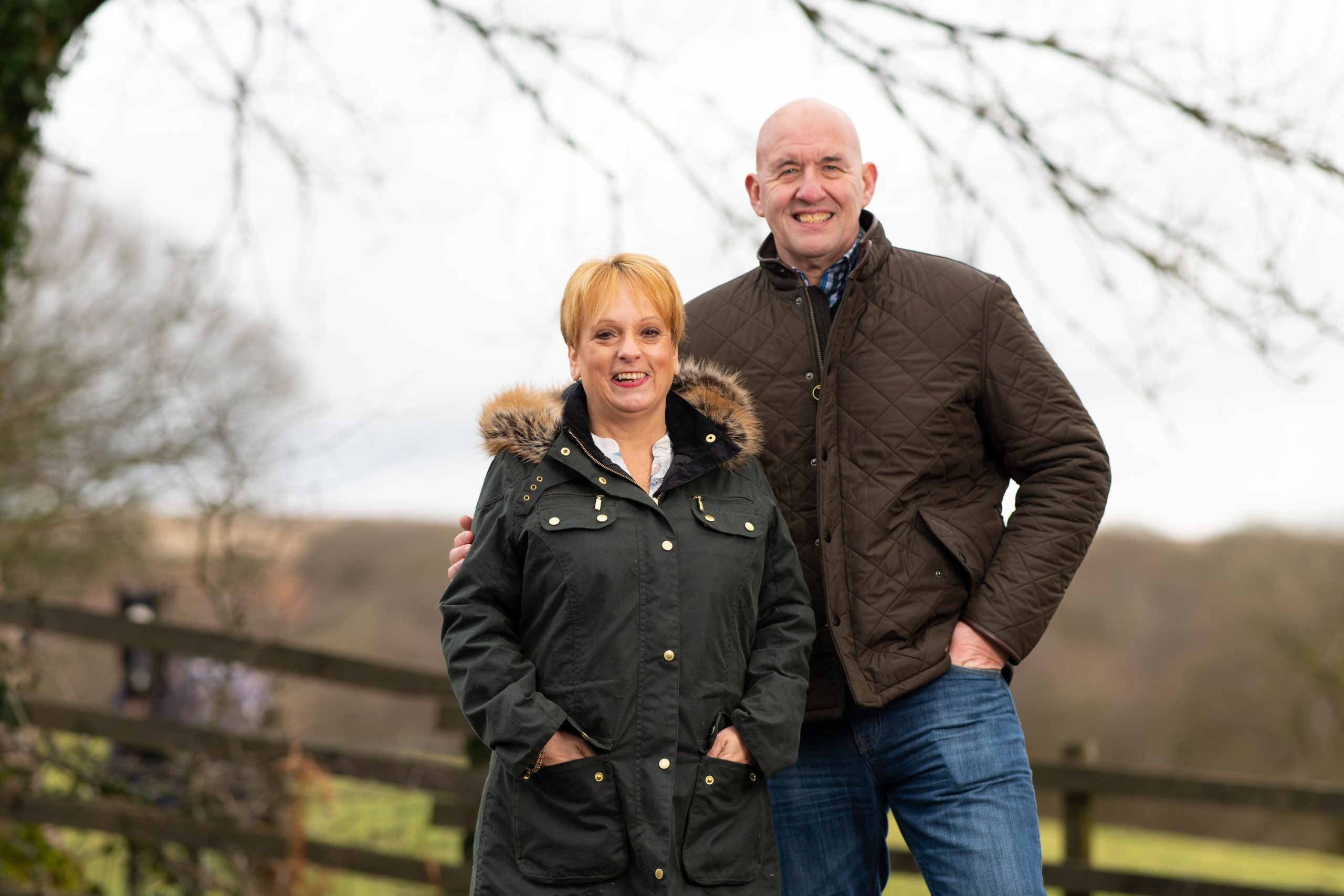A PENDERYN grandad who found out he had cancer after a visit to the dentist is backing a campaign to help fund more big breakthroughs.
Anthony Butt was diagnosed with throat cancer in 2016, after a routine dental check-up. What he thought was a sore throat, turned out to be a cancerous mass that had started to spread.
The former police officer said: “The dentist spotted something at the back of my throat which needed to be checked. I was diagnosed with throat cancer a few weeks later and it felt like my whole world had ended.
“Looking back, I did have a bit of a bit of a sore throat, and it felt like I had a piece of popcorn stuck there, but I never thought it was cancer.”
The 66-year-old says he owes his life to Cancer Research UK after taking part in a trial funded by the charity.
He signed up to the Pathos trial which focuses on cancers caused by a common virus called Human Papillomavirus (HPV). Infection with HPV increases the risk of certain types of cancers, including head and neck cancer. The trial is investigating the benefits of less invasive surgery, together with lower doses of chemotherapy or radiotherapy.
Anthony, a grandfather-of-four, had surgery followed by two rounds of chemotherapy and six weeks of radiotherapy. As the cancer had spread to his lymph nodes, Anthony needed further surgery which meant he was unable to eat solid food for nine days.
Professor Mererid Evans, a Consultant Clinical Oncologist at Cardiff’s Velindre Cancer Centre, led the trial alongside Professor Terry Jones at the University of Liverpool.
Today, almost 10 years later, not only is Anthony cancer-free, but his treatment also spared him from debilitating side-effects, like problems with swallowing, and he is enjoying family life with wife Judith, his daughter Sarah, son Gareth, and great granddaughters Isabelle, Maddie, Megan and Livvie.
Success stories like Anthony’s are made possible by the generosity of Cancer Research UK supporters. That’s why he’s urging people across Wales to help save more lives by donating monthly to the charity.
Cancer Research UK scientists laid the foundations for modern radiotherapy back in the 1920s. After decades of research to innovate and improve it, today radiotherapy is used to treat more than 140,000 people every year in the UK,* from curing early-stage cancer to easing symptoms for people with terminal illness.
Anthony knows firsthand the century-old treatment is far from old-fashioned and now he wants to see more patients benefit from progress like this.
He said: “I have Cancer Research UK to thank for the quality of life I’m enjoying today. It could have been a different story.
“When I first heard those devastating words “you have cancer”, time stopped. I couldn’t believe it was happening to me. I’ve had some really dark times, but my wife and my family have pulled me through.
“It’s thanks to research that I’ve been given the greatest gift: more precious time with my loved ones. I’ve enjoyed treasured moments with my grandchildren that were impossible to imagine when I heard those terrifying words ‘It’s cancer.’
“Life-saving treatments are made by decades of testing, trialling and learning. I simply wouldn’t be here without the energy and commitment of Cancer Research UK scientists. Step by step they’re beating this devastating disease and donating monthly will make a huge difference to their work now and in the future.”
Cancer Research UK spokesperson for Wales, Ruth Amies, said: “As the evolution of radiotherapy shows, we’ve been at the forefront of cancer research for over 100 years. From making it more targeted to combining it with other treatments and reducing the number of doses needed, Cancer Research UK has changed clinical practice worldwide and made radiotherapy kinder and more effective. But our work isn’t done yet.
“That’s why we’re grateful to Anthony for helping to raise vital awareness and funds. We want to bring about a world where everybody lives longer, better lives, free from the fear of cancer – no matter who they are or where they’re from. And monthly donations are critical to making this a reality.”
Throat cancer survivor, Anthony Butt, is urging people to donate monthly to Cancer Research UK to help fund more big breakthroughs. Help save more lives atcruk.org/donate
Support the future of cancer research at cruk.org/donate
RADIOTHERAPY FAQ
Cancer Research UK’s Dr Anna Kinsella answers some commonly asked questions about radiotherapy.
What is radiotherapy?
Radiotherapy is a cornerstone of cancer treatment used across many types of the disease. It can be used to treat the cancer, reduce the chances of the cancer coming back or to help relieve symptoms.
How does radiotherapy work?
It uses radiation, usually x-rays, to damage the DNA inside cancer cells so that they stop growing or die. Cancer Research UK pioneered some of the earliest studies of x-rays and radium in the treatment of cancer. Since then, the charity’s research has underpinned advances in radiotherapy, from exploring the effects of radiation on cells and standardising its use, to practice changing trials.
What are the side effects of radiotherapy?
Common side effects include tiredness and sensitive skin, but they vary depending on the area being treated. Decades of research has helped to reduce the impact of treatment on patients and there’s lots of first-hand information and advice from people who have had radiotherapy on the Cancer Research UK website.



